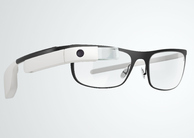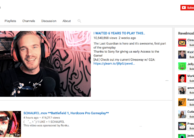“I didn't get sent here to be elected Prom King.” Chris Christie peppered this signature mantra in many of his 2009 stump speeches, emphasizing that principle, not popularity, would help him lead New Jersey. These kinds of sweeping, yet pragmatic statements acted as one crux in Christie’s campaign and bolstered his reputation as a dynamic, determined problem solver who trivialized party lines.
Christie had developed and honed these skills while serving as U.S. Attorney for the State of New Jersey. Prior to his appointment, Christie was a lawyer and for a brief time, a lobbyist. He worked to deregulate state utilities and prevent security fraud. As a U.S. Attorney from 2002 to 2009, Christie was noted for exposing public corruption cases. His administration notably found Republican Essex County Executive James W. Treffinger and Democratic State Senator Wayne R. Bryant guilty of bribery and fraud. His aggressive, dogged approach to state corruption established his credibility and earned the respect of New Jersey residents. Chris Christie resigned his post as U.S. Attorney in October 2009 with the intention of unseating Democratic Governor Jon Corzine.
New Jersey’s 2009 gubernatorial race was highly contested, seen through week-by-week percentage marking periods throughout the election season. The state was politically divisive, but Christie won 48.46% of the vote, in comparison in Corzine with 44.88%.
Hurricane Sandy, the 2012 Category 3 storm that plowed through New Jersey and ranked the second costliest in US history, occurred between Christie’s first and second gubernatorial campaigns. The governor received both praise and disapproval for his response to the state crisis. Christie gained considerable media attention when he met President Obama to survey the damage and comfort survivors, which both fostered feelings of bipartisanship.

Gov. Chris Christie meets with county officials in Cape May, NJ on October 30th, 2012, after Hurricane Sandy devastated coastal communities. Photo: Governor's Office/Tim Larsen.
The governor also admonished the GOP for refusing to vote for Sandy aid unless pork barrel legislation was included. Conservative think tank analysts criticized Christie’s respose after Sandy and pointed to New Jersey’s lack of emergency planning and dependence on federal disaster aid as a larger issue of poor state leadership.
Christie’s campaign used Hurricane Sandy, which most severely affected New Jersey, to leverage his public image. In 2012, the Christie campaign would pursue completely different strategies and campaign phases to reach new parts of the electorate, such as young families, Korean-Americans, and Hispanics.
The sharpest politicians, whether consciously or not, oscillate between varying moral foundations and leadership styles. They understand that ever-changing circumstances in the political sphere call for different means of engaging and maintaining their constituents.
Christie emerged as a clear victor and defeated challenger Barbara Buono with 60.4% of the vote. Christie’s leadership, therefore, suggests that the governor’s bipartisan appeals have minimized party politics. Understanding if and how the superstorm led Christie to change his political strategy is important to understanding the evolution of his moral foundations and leadership style.
Relevant previous work in this discipline can be divided into three distinct groups: politics and rhetoric, leadership, and the differences between liberals and conservatives.
In the field of political rhetoric, arguments have been made to consider the importance of a candidate’s strengths when choosing a campaign theme and emphasized issues. Candidates additionally need to determine their targeted group in the electorate, although they should aim to appeal to the widest, most diverse support base as possible. Some media experts assert that natural disaster and crisis situations serve as prime examples to evaluate leaders’ political ideology and public image. Studies have found that in crisis, such as Hurricane Katrina, the media adopts a position to blame and criticize authority figures.
In addition, the media, and arguably similar, political campaigns, accordingly make rhetorical decisions about coverage. This study concludes that media portrayals can affect how authorities react to initial crisis. For example, Hurricane Sandy impacted the 2008 campaign in swing states, but the explanation is unclear. While political leaders are not always responsible for crisis, they are expected to respond quickly and appropriately, which gives citizens an opportunity to reflect on their leaders’ competency.
In previous arguments about city and state authority, authors conclude that mayoral visibility, especially in noncontroversial events, is critical to developing a positive public image. Crisis can impact one’s political agenda, depending on their response to the situation. Effective leaders, such as Boston mayor Kevin White in 1968, turned a crisis scenario into an administrative success.
Helping citizens after a disaster or crisis situation makes governmental systems more accessible to thousands of citizens. How a leader responds can either create a fresh image of community involvement and municipal responsiveness or decrease leaders’ legitimacy.
In the aftermath of Hurricane Sandy, conservative policy experts made recommendations for disaster and leadership, emphasizing the importance of state defense. Recently, policy experts have made strong appeals to give states more responsibility in crisis management. Without stronger state leadership, conservatives propose that disaster preparedness will be deemphasized.
The difference in liberals and conservatives’ political ideologies has been studied at length, with some policy experts arguing that political distinctions can, depending on the issues, lead to more effective policies. When both parties’ initiatives are consistent and based on a clear demarcation of the policy’s effect, the conflict can positively contribute to policy development.
This study is based on data collected from Governor Chris Christie’s 2009 and 2013 campaign television advertisements and public speeches, spanning from October 17th, 2009 to November 5th, 2013, when the last electoral results were determined. The television advertisements and taped speeches were chosen as clear, accessible examples of political rhetoric. The clips, in addition to Christie’s public speeches, were used to compare how the campaign planned and executed their strategy in the two election seasons. Gubernatorial debates were initially collected and watched, but the researcher found that the clips presented an unintentional basis.
Christie’s shift in moral foundations and leadership style would have to be gauged against his opponents, which would be difficult to objectively compare. Therefore, clips of the 2009 and 2013 debates have been omitted from this study. Exhibits were retrieved from either C-SPAN or YouTube archives, or the Vanderbilt University Video Library database. A few of the 2009 taped speeches were from New Jersey newspaper websites. Because the 2009 campaign was significantly less publicized outside of New Jersey, the number of clips and exhibits found was substantially less than the 2013 election season. Based on these parameters, a total of 15 television advertisements and 16 speeches were selected for analysis.Continued on Next Page »
“2009 New Jersey Gubernatorial General Election: Christopher Christie (R) v. Governor Jon Corzine (D)” 2009. http://www.pollster.com/polls/nj/09-nj-gov-ge-cvc.php?nr=1 (November 1, 2009).
Bucci, Steven; Inserra, David; Lesser, Jonathan; Mayer, Matt; Slattery, Brian; Spencer, Jack; Tubb, Katie 2012. “After Hurricane Sandy: Time to Learn and Implement the Lessons in Preparedness, Response, and Resilience.” (October) http://www.heritage.org/research/reports/2013/10/after-hurricane-sandy-time-to-learn-and-implement-the-lessons (November 11, 2013).
Burling, W.; Hyle, A (1997). “Disaster Preparedness Planning” Disaster Prevention and Management 6(4): 234-244.
Cameron, Esther; Green, Mike. (2008). Making Sense of Leadership: Exploring the Five Key Roles Used by Effective Leaders. Philadelphia, PA: Kogan Page Press.
Cavaliere, Valerie. (2014, April 9). New Jersey voters see Christie’s internal bridge review as ‘whitewash’ poll. Reuters. Retrieved July 13, 2014, from http://www.reuters.com/article/2014/04/09/us-usa-politics-christie-poll
Chris Christie’s Lane Shift: From Sarcasm to Outrage. (n.d.). New Jersey News. Retrieved July 13, 2014, from http://www.wnyc.org/story/3-stages-chris-christies/crisis-management/
Ferman, Barbara. 1985. Governing the Ungovernable: Political Skill, Leadership, and the Modern Mayor. Philadelphia: Temple University Press.
Geraghty,Jim.Christie: “I am outraged and deeply saddened…I was misled.’ (n.d.). National Review Online. Retrieved July 13, 2014, from http://www.nationalreview.com/campaign-spot
Grafton, C; Permaloff, A. (2008). Liberal-conservative Conflict and Consensus in Policy Making.” The Social Science Journal 45, no. 4 (2008): 580-593.
Graham, Jesse; Haidt, Jonathan; Nosek, Brian. (2009). “Liberals and Conservatives Rely on Different Sets of Moral Foundations.” Journal of Personality and Social Psychology 96(5): 1029-46.
Henderson, Nia-Malika; O’Keefe, Ed. 2013. “Republicans Slam Boehner for Delay on Hurricane Sandy Relief Measure.” Washington Post. Jan. 2 http://articles.washingtonpost.com/2013-01-02/politics/36211763_1_cliff-vote-toxic-internal-politics-boehner-four-times (Accessed December 2nd, 2013).
Letter from Wildstein’s Lawyer on Lane Closings. (2014, January 31). The New York Times. Retrieved July 13, 2014, from http://www.nytimes.com/interactive/2014/02/01/nyregion/bridge-letter
Littlefield, R; Quenette, A. (2007). “Crisis Leadership and Hurricane Katrina: The Portrayal of Authority By the Media in Natural Disasters.” Journal of Applied Communication Research 35 (1): 26-47.
Margolin, Josh. 2008. “U.S. Attorney Christopher Christie To Step Down.” The Jersey Sting Oct. 17 http://www.nj.com/news/index.ssf/2008/11/us_attorney_christopher_christ (Accessed November 11th, 2013).
“New Jersey Governor” 2013. http://www.nytimes.com/projects/elections/2013/general/new- jersey/map (November 6 2013). Rispoli, Michael. 2009. “Gov. Corzine, Chris Christie Trade Barbs About Lobbying Histories.” The Star-Ledger Aug. 25 http://www.nj.com/news/index.ssf/2009/08/gov_corzine_chris_christie_tra.html (Accessed December 2nd, 2013).
Steinberg, Arnold. 1976. The Political Campaign Handbook. Lexington, MA ; D.C. Heath Press.
UPDATE: 6-NJ governor’s internal investigation clears him in ‘Bridgegate’. (2014, March 27). Reuters. Retrieved July 13, 2014, from http://www.reuters.com/article/2014/03/27/usa-politics/christie
Walshe, Shushannah. (2014, February 3). Chris Christie Says He ‘Unequivocally’ Had No Knowledge of Lane Closure. ABC News. Retrieved July 13, 2014, from http://abcnews.go.com/blogs/politics/2014/02/chris-christie-says-he-unequivocally-had-no-knowledge-of-lane-closure
Velez, Yamil; Martin, David. 2013. “Sandy the Rainmaker: The Electoral Impact of a Super Storm.” Political Science and Politics (April): 313-23
http://journals.cambridge.org/action/displayAbstract?fromPage=online&aid=8874452 (November 11, 2013).
Zernike, Kate. (2014, January 8). Christie Faces Scandal on Traffic Jam Aides Ordered. The New York Times. Retrieved July 13, 2014, from http://www.nytimes.com/2014/01/09/nyregion/christie-aid-tied-to-bridge-lane-closings.html.
List of Exhibits
2009
- Chris Christie Television Ad—“Corruption”
- Chris Christie for Governor 2009 Ad “A Leader”
- Chris Christie Television Ad “Leadership”
- Christie Launches Campaign Speech
- Chris Christie Campaigns in Woodland Park Speech
- Catching Up With Chris Christie on the Campaign Trail Speech
- New Jersey Gubernatorial Debate (10/01/09)
- Christie Campaigns in Morristown Speech
- Chris Christie Victory Speech (11/03/09)
2013
- “Leo” Christie for Governor Ad
- “Frank” Christie for Governor Ad
- Chris Christie: Right Direction TV Ad
- Shaq Endorses Republican Chris Christie TV Ad
- “The Difference” TV Ad
- “Courageous Leadership” TV Ad
- “Bipartisan” TV Ad
- “Compassion” TV Ad
- “Un Mejor Futuro, Mas Brilliante” TV Ad
- “They Said” TV Ad
- “Meet Barbara Buono” TV Ad
- “Governor Christie: Real Leadership for State” TV Ad
- “Getting the Job Done” TV Ad
- Both Parties Could Use a Seminar Speech
- Don’t Disappoint My 3rd Grade Teacher Speech
- I’m Honored to Stand with These Men and Women Speech
- It’s Been An Incredible Honor to Be Your Governor Speech
- Put People Ahead of the Party Speech
- This is a Historic Day Speech
- This Isn’t a Job Anymore; It’s a Mission Speech
- “I Love You, New Jersey” Victory Speech
- 2013 New Jersey Gubernatorial Debate
Endnotes
1.) Gov. Corzine, Chris Christie trade barbs about lobbying histories (NJ.com). Retrieved July 6th, 2014 from http://www.nj.com/news/index.ssf/2009/08/gov_corzine_chris_christie_tra.html
2.) NJ.com. (n.d.)—New Jersey Local News. Retrieved July 6th, 2014, from http://www.nj.com/news/index.ssf/2008/11/us_attorney_christopher_christ
3.) Pollster.com. (n.d.).—Political Surveys and Election Polls, Trends, Charts and Analysis. Retrieved July 6th, 2014 from http://www.pollster.com/polls/nj/09-nj
4.) Christie, Republicans slam Boehner for delay on Hurricane Sandy relief measure. (n.d.). Washington Post. Retrieved July 6th, 2014, from http://articles.washingtonpost.com/2013-01-02/politics/36211763_1_cliff-vote-toxic-internal-politics-boehner-four-times
5.) Bucci, Steven; Inserra, David; Lesser, Jonathan; Mayer, Matt; Slattery, Brian; Spencer, Jack; Tubb, Katie 2012. “After Hurricane Sandy: Time to Learn and Implement the Lessons in Preparedness, Response, and Resilience.” 12-15 (October) http://www.heritage.org/research/reports/2013/10/after-hurricane-sandy-time-to-learn-and-implement-the-lessons
6.) “New Jersey Governor” 2013. http://www.nytimes.com/projects/elections/2013/general/new- jersey/map. Retrieved November 6 2013.
7.) Steinberg, Arnold. 1976. The Political Campaign Handbook. Lexington, MA ; D.C. Heath Press. 42.
8.) Littlefield, R; Quenette, A. (2007). “Crisis Leadership and Hurricane Katrina: The Portrayal of Authority By the Media in Natural Disasters.” Journal of Applied Communication Research 35 (1): 42-45.
[9] Velez, Yamil; Martin, David. 2013. “Sandy the Rainmaker: The Electoral Impact of a Super Storm.” Political Science and Politics (April): 316-320.
http://journals.cambridge.org/action/displayAbstract?fromPage=online&aid=8874452. Accessed on November 11, 2013.
10.) Ferman, Barbara. 1985. Governing the Ungovernable: Political Skill, Leadership, and the Modern Mayor. Philadelphia: Temple University Press. 73-78.
11.) Ferman, Barbara. 1985. Governing the Ungovernable: Political Skill, Leadership, and the Modern Mayor. Philadelphia: Temple University Press. 130-135.
12.) Burling, W. Hyle, A (1997). “Disaster Preparedness Planning” Disaster Prevention and Management 6(4): 240.
13.) Bucci, Steven; Inserra, David; Lesser, Jonathan; Mayer, Matt; Slattery, Brian; Spencer, Jack; Tubb, Katie 2012. “After Hurricane Sandy: Time to Learn and Implement the Lessons in Preparedness, Response, and Resilience.” 17. (October) http://www.heritage.org/research/reports/2013/10/after-hurricane-sandy-time-to-learn-and-implement-the-lessons (November 11, 2013).
14.) Grafton, C; Permaloff, A. (2008). Liberal-conservative Conflict and Consensus in Policy Making.” The Social Science Journal 45, no. 4 (2008): 585-588.
15.) Graham, Jesse; Haidt, Jonathan; Nosek, Brian. (2009). “Liberals and Conservatives Rely on Different Sets of Moral Foundations.” Journal of Personality and Social Psychology 96(5): 1030.
16.) Cameron, Esther; Green, Mike. (2008). Making Sense of Leadership: Exploring the Five Key Roles Used by Effective Leaders. Philadelphia, PA: Kogan Page Press. 11-17.
17.) Cameron, Esther; Green, Mike. (2008). Making Sense of Leadership: Exploring the Five Key Roles Used by Effective Leaders. Philadelphia, PA: Kogan Page Press. 36-40.
18.) Cameron, Esther; Green, Mike. (2008). Making Sense of Leadership: Exploring the Five Key Roles Used by Effective Leaders. Philadelphia, PA: Kogan Page Press. 20.
19.) Graham, Jesse; Haidt, Jonathan; Nosek, Brian. (2009). “Liberals and Conservatives Rely on Different Sets of Moral Foundations.” Journal of Personality and Social Psychology 96(5): 1040.
20.) Cameron, Esther; Green, Mike. (2008). Making Sense of Leadership: Exploring the Five Key Roles Used by Effective Leaders. Philadelphia, PA: Kogan Page Press. 40.
21.) TV Ad, “The Difference,” 2013
22.) “Don’t Disappoint My 3rd Grade Teacher” Speech, 2013
23.) “Compassion” TV Ad, 2013
24.) “They Said” TV Ad, 2013
25.) Put People Ahead of the Party Speech, 2014
26.) Cameron, Esther; Green, Mike. (2008). Making Sense of Leadership: Exploring the Five Key Roles Used by Effective Leaders. Philadelphia, PA: Kogan Page Press. 108-112.
27.) Cameron, Esther; Green, Mike. (2008). Making Sense of Leadership: Exploring the Five Key Roles Used by Effective Leaders. Philadelphia, PA: Kogan Page Press. 40.
28.) Ferman, Barbara. 1985. Governing the Ungovernable: Political Skill, Leadership, and the Modern Mayor. Philadelphia: Temple University Press. 78.
29.) Cameron, Esther; Green, Mike. (2008). Making Sense of Leadership: Exploring the Five Key Roles Used by Effective Leaders. Philadelphia, PA: Kogan Page Press. 51.
30.) Cameron, Esther; Green, Mike. (2008). Making Sense of Leadership: Exploring the Five Key Roles Used by Effective Leaders. Philadelphia, PA: Kogan Page Press. 113.
31.) Cameron, Esther; Green, Mike. (2008). Making Sense of Leadership: Exploring the Five Key Roles Used by Effective Leaders. Philadelphia, PA: Kogan Page Press. 118.
32.) Zernike, Kate. (2014, January 8). Christie Faces Scandal on Traffic Jam Aides Ordered. The New York Times. Retrieved July 13, 2014, from http://www.nyimes.com/2014/01/09/nyregion/christe-aide
33.) Chris Christie’s Lane Shift: From Sarcasm to Outrage. (n.d.). New Jersey News. Retrieved July 13, 2014, from http://www.wync.org/story/3-stages-chris-christies
34.) Walshe, Shushannah. (2014, February 3). Christie Says He ‘Unequivocally’ Had No Knowledge of Lane Closure. ABC News. Retrieved July 13, 2014 from http:// abcnews.go.com/blogs/politics/2014/02/chris-christie
35.) Letter from Wildstein’s Layer on Lane Closings. (2014. January 31). The New York Times. Retrieved July 13, 2014, from http://www.nytimes.com/interactive/2014/02/01/nyregion/bridge-letter
36.) Zernike, Kate. (2014, January 8). Christie Faces Scandal on Traffic Jam Aides Ordered. The New York Times. Retrieved July 13, 2014, from http://www.nyimes.com/2014/01/09/nyregion/christe-aide
37.) UPDATE 6-NJ governor’s internal investigation clears him in ‘Bridgegate’. (2014, March 27). Reuters. Retrieved July 13, 2014, from http://www.reuters.com/article/2014/03/27/usa-politics
38.) Jim Geraghty-Christie: “I am outraged and deeply saddened…I was misled.’ (n.d.). National Review Online. Retried July 13, 2014, from http://www.nationalreview.com/campaign-spot
39.) Cavaliere, Valerie. (2014, April 9). New Jersey voters see Christie’s internal bridge review as ‘whitewash’; poll. Reuters. Retrieved July 13, 2014, from http://www.reuters.com/article/2014




















